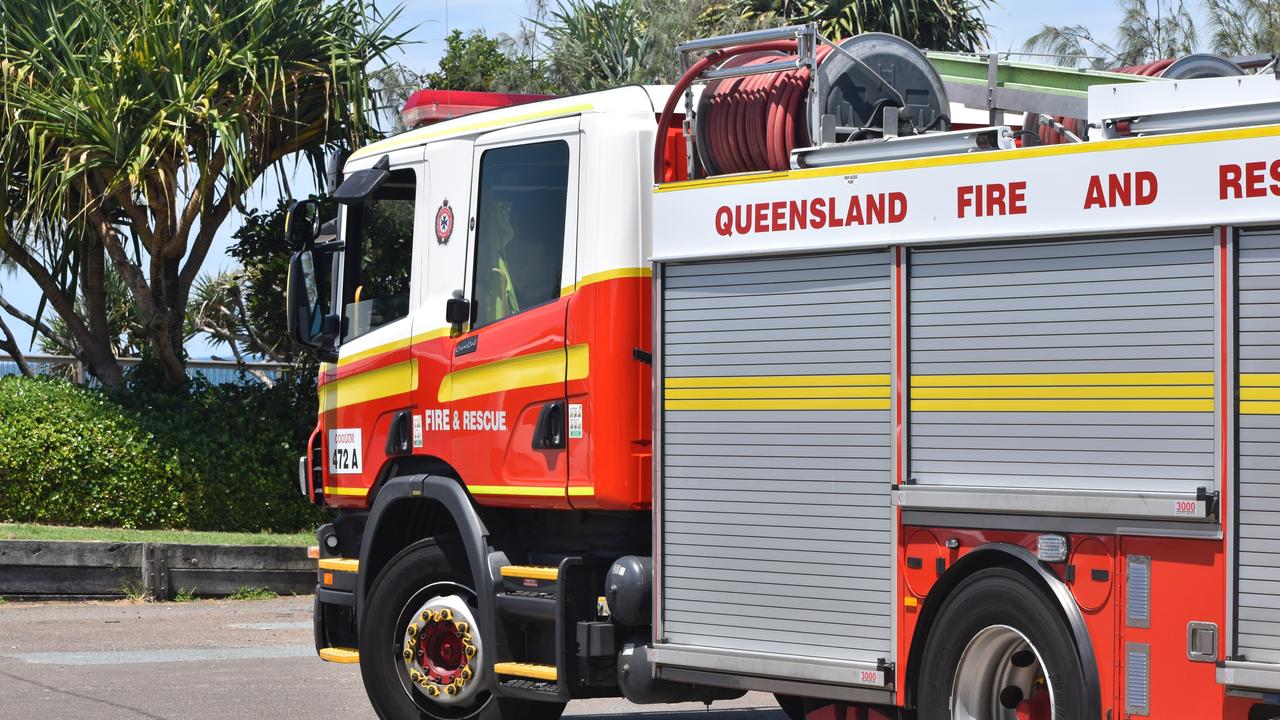‘Incredibly distressing’: Cost-of-living crisis plunges Qld families into debt
Working Queensland families are spending $200 more than they earn each week on just the bare essentials as the spiralling cost of living pushes household budgets to the brink.

QLD News
Don't miss out on the headlines from QLD News. Followed categories will be added to My News.
Working Queensland families are spending $200 more than they earn each week on just the bare essentials as the spiralling cost of living pushes household budgets to the brink.
The extent of the crisis is laid bare in a new report from the Queensland Council of Social Service, which shows families are falling more than $10,000 into debt each year as the price of everyday essentials skyrockets.
Petrol, gas and other household fuels, electricity, bread and milk all surged by more than 10 per cent in the 12 months to August – on top of already record-high rents and property prices.
Which is why today, The Courier-Mail challenges the Premier and Opposition Leader David Crisafulli to front up to a one-on-one conversation that we will host and where they will hear directly from our readers about their struggle.
QCOSS chief executive Aimee McVeigh said the annual living affordability report showed a family with a parent was earning “significantly” more than the minimum wage coupled with a stay-at-home partner and two children was falling nearly $200 into debt each week just.
This means the family will lose nearly $10,340 a year, which is $1280 worse than what was flagged in last year’s report.

“It’s incredibly distressing to see the extreme financial pressure that so many families are under,” Ms McVeigh said.
“The living affordability report shows that four out of five low income families are unable to afford the basics and the most troubling part of it is the households under the most pressure are families with children.”
Ms McVeigh said for single parents, it was even worse.
“ … You’re running a deficit of around $256 a week so that means that a single mum’s running a deficit per year of about $13,500,” Ms McVeigh said.
“Imagine the pressure of that kind of debt and then add to that any unforeseen expenses like new school, shoes, new equipment for school and emergency medical expenses.
“You have absolutely no capacity to respond to that, let alone imagine if you’re impacted by an extreme weather event and find yourself without insurance.
“These aren’t unique or extraordinary experiences, people are routinely impacted by extreme weather events.”
Updated figures from the state’s social housing register showed the number of households with children in need of a home rose from 5988 to 6733, which Ms McVeigh said was consistent with the report’s findings.
“Right now, there is a really marked difference from this year to the previous year in terms of the deficits that families with children are running,” she said.
“This is incredibly troubling because we know that there are a generation of children growing up in poverty without a roof over their head.”
Fuel was the steepest rise for family budgets in 2023, surging nearly 14 per cent to August, while more than a dozen basic essentials lifted by more than five per cent.
This included insurance, rent, transport, food products, housing, education and health, which all increased between 5.2 and 8.8 per cent.
Ms McVeigh said this significant increase particularly crunched low income Queenslanders who are forced to spend almost their entire income on basic living costs.
She said the support services are assisting working families who would not typically need help, which she said was evidence of the extreme pressures facing the community.
“This is not business as usual,” the chief of the sector’s peak body said.
“The cost of living pressures are having an impact across the community — more and more our services are supporting fully employed people (and) working families who are unable to afford to feed their families and who are unable to afford the rent.”
QCOSS, along with a number of core member organisations including St Vincent de Paul, will today launch the Make Queensland Fair campaign to lobby both major parties in the lead up to the October state election.
St Vinnies Queensland chief executive Kevin Mercer said it was critical political leaders focused their efforts on improving conditions for the state’s vulnerable as living pressures intensified.
He said the number of those seeking support from the homelessness service provider rose 13 per cent in 2023 and nearly 40 per cent over the last three years.
“People are really desperate for housing and struggling with that,” Mr Mercer said.
“They’re trying to put food on the table and it’s a really difficult time for people and it’s not just those on income support but also people on low income and working families.”
Mr Mercer said he feared the situation will worsen before it improves.
“We’re not necessarily seeing any relief on the horizon,” he said.
“Inflation has stabilised but still very high and when you break down those important categories, some (have risen at (double the rate of inflation.”



